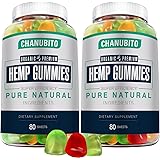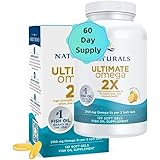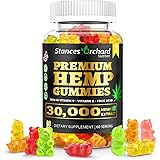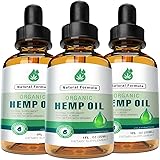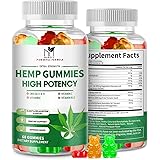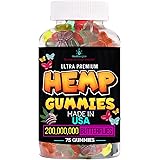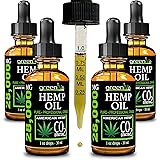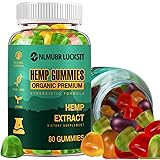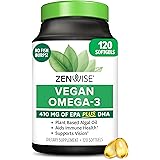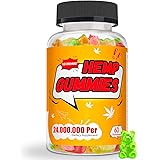Have you ever found yourself scratching your head at the grocery store or online, trying to understand the difference between labels like “CBD oil,” “hemp extract,” “hemp seed oil,” and simply “hemp oil”? It’s a common dilemma, and one that the video above brilliantly begins to clarify. The surging popularity of CBD products has unfortunately led to a confusing, often unregulated market, making it challenging for consumers to know exactly what they’re buying and what benefits to expect. This guide aims to expand on the video’s insights, providing a deeper dive into these terms and equipping you with the knowledge to make informed decisions about your health and wellness investments.
Understanding CBD: The Star Cannabinoid
When you see “CBD” on a product label, you’re looking at Cannabidiol, one of over 100 different cannabinoids found in the Cannabis sativa plant. Unlike THC, the well-known cannabinoid responsible for the psychoactive effects of cannabis, CBD is non-intoxicating. This distinction is crucial for many users who seek therapeutic benefits without the “high.” The video touched upon CBD’s massive benefits, and these claims are backed by a growing body of research.
CBD has been widely celebrated for its potential to support overall well-being. Its anti-inflammatory properties make it a subject of interest for conditions ranging from everyday aches to chronic pain, such as that associated with arthritis. Furthermore, many individuals turn to CBD for anxiety relief, finding that it helps promote a sense of calm and relaxation. These therapeutic potentials highlight why CBD has moved from being “shunned for so long” to gaining widespread acceptance and exposure.
However, the rapid growth of the CBD market has also created an environment often described as the “Wild West.” The industry largely remains unregulated at a federal level, leading to inconsistencies in product quality, labeling, and potency. This lack of oversight means consumers must exercise caution and diligence when selecting CBD products, as not all products are created equal.
Deciphering “Hemp Extract”: A Different Name for CBD
The term “hemp extract” can often be a source of confusion, but as the video explains, if a product is labeled as such, it almost certainly contains CBD. “Hemp extract” essentially serves as an alternative, and sometimes preferred, term for CBD oil, containing a range of cannabinoids, terpenes, and other beneficial compounds from the hemp plant. This wording can be chosen by businesses for various reasons, including personal preference, branding strategy, or navigating the intricate legal landscape surrounding cannabis-derived products.
Historically, and even presently, legal ambiguities have influenced how companies label their offerings. Using “hemp extract” allows some brands to market their products without explicitly naming CBD, which, despite its prevalence, still carries certain stigmas or regulatory hurdles in different regions. Therefore, when you encounter a product labeled “hemp extract,” you should confidently assume it contains Cannabidiol. Always remember that this term signifies a product derived from the hemp plant that includes its beneficial compounds, including CBD.
Hemp Seed Oil: A Nutritional Powerhouse, Not a CBD Source
This is where a significant distinction needs to be made: hemp seed oil does not contain CBD. This fact is critical for consumers to understand, as misleading marketing can sometimes blur the lines between different hemp-derived products. As the video clearly states, CBD is extracted from the stalks, stems, and flowers of the Cannabis sativa plant. Hemp seed oil, conversely, is pressed solely from the seeds of the plant.
These hemp seeds, while incredibly nutritious, naturally lack cannabinoids like CBD. Therefore, a product made purely from hemp seed oil will not offer the same therapeutic effects associated with Cannabidiol. Despite the absence of CBD, hemp seed oil is far from devoid of benefits. It is highly valued for its exceptional nutritional profile, often earning it a spot in healthy diets and skincare routines.
Hemp seed oil is rich in antioxidants, which help combat oxidative stress in the body. It also provides a complete profile of amino acids, the building blocks of protein, essential for various bodily functions. Perhaps its most celebrated feature is its high content of omega fatty acids, specifically the ideal 3:1 ratio of Omega-6 to Omega-3. These essential fatty acids are vital for heart health, brain function, and reducing inflammation throughout the body. Many people use hemp seed oil as a cooking oil, similar to olive oil, or as a nutritional supplement, highlighting its significant health advantages even without CBD.
The Ambiguity of “Hemp Oil”
Among all the terms, “hemp oil” is arguably the most confusing, due to its broad and often ambiguous usage. As highlighted in the video, this general term can refer to one of two vastly different products. It could be used as a shorthand for hemp seed oil, which, as we’ve established, contains no CBD but is prized for its nutritional value. Alternatively, “hemp oil” might refer to hemp extract, which does contain CBD and other beneficial cannabinoids.
This ambiguity poses a significant challenge for consumers trying to understand what they are purchasing. Without further clarification on the label, it’s nearly impossible to discern the product’s actual contents and intended benefits. Due to this lack of specificity, the video rightly advises exercising caution. When faced with a product simply labeled “hemp oil,” it’s often best to either avoid it altogether or directly contact the manufacturer for detailed information. This due diligence ensures you get the product you intend to use and for the purpose you desire.
Navigating the Market: Your Guide to Safe CBD Product Selection
Given the unregulated nature of the CBD industry, consumer education and vigilance are paramount. It’s not enough to simply understand the definitions; knowing how to scrutinize products and demand transparency from brands is essential for safe and effective use of CBD products. The market is rife with options, but not all suppliers adhere to the highest standards of quality and honesty.
Demanding the Certificate of Analysis (COA)
One of the most crucial steps a consumer can take is to always request a Certificate of Analysis (COA) for any CBD product they consider purchasing. A COA is a document from a third-party, accredited laboratory that confirms the cannabinoid content of a product and verifies it has been tested for contaminants. This independent testing is a cornerstone of transparency and product safety in an otherwise unregulated market.
When reviewing a COA, look for several key pieces of information. Firstly, it should clearly list the levels of cannabinoids present, most importantly CBD and THC. This confirms the potency and ensures the THC content is within legal limits (typically less than 0.3% Delta-9 THC). Secondly, the COA should detail tests for purity, indicating the absence of harmful contaminants such as heavy metals, pesticides, and residual solvents. These substances can be present if the hemp was grown in contaminated soil or processed with unsafe methods. A comprehensive COA empowers you to verify a company’s claims and make sure you’re getting a clean, potent, and safe product.
Additionally, while the video mentions them for another discussion, understanding the basic categories of CBD products—Full Spectrum, Broad Spectrum, and Isolate—can further guide your selection. Full Spectrum products contain all the beneficial compounds naturally found in the hemp plant, including trace amounts of THC (under 0.3%). Broad Spectrum products include multiple cannabinoids and terpenes but typically have the THC removed. CBD Isolate, on the other hand, is pure CBD, with all other plant compounds removed. Each type offers different benefits and may be preferred depending on individual needs and sensitivities.
As the CBD industry continues to evolve and hopefully becomes more standardized, the responsibility largely falls on the consumer to stay informed. By understanding the critical differences between CBD, hemp extract, hemp seed oil, and ambiguous “hemp oil” labels, and by prioritizing third-party tested products, you can confidently navigate this complex landscape. Always improve your body, improve your mind, and improve the world with well-informed decisions.


